Samrat Phatale
Improve Mathematical Reasoning in Language Models by Automated Process Supervision
Jun 05, 2024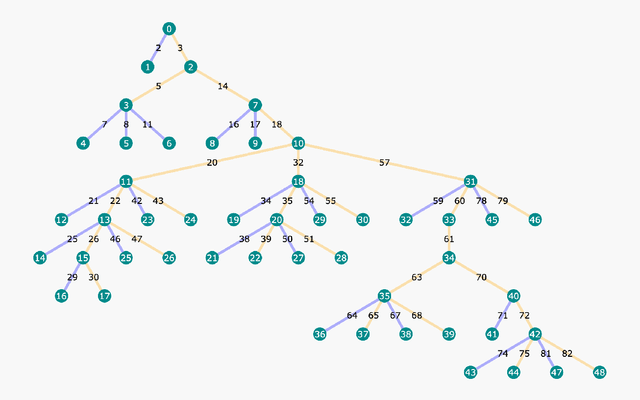

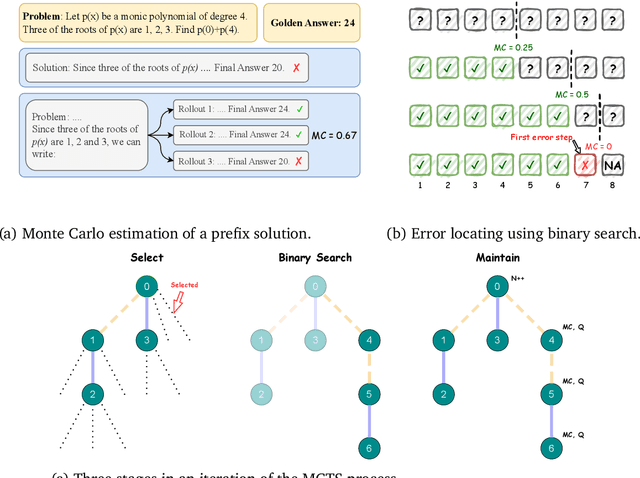
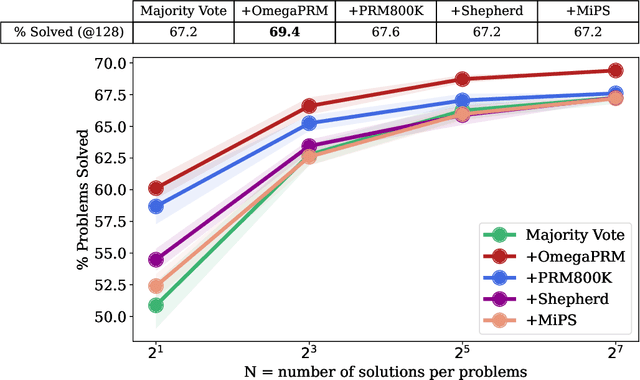
Abstract:Complex multi-step reasoning tasks, such as solving mathematical problems or generating code, remain a significant hurdle for even the most advanced large language models (LLMs). Verifying LLM outputs with an Outcome Reward Model (ORM) is a standard inference-time technique aimed at enhancing the reasoning performance of LLMs. However, this still proves insufficient for reasoning tasks with a lengthy or multi-hop reasoning chain, where the intermediate outcomes are neither properly rewarded nor penalized. Process supervision addresses this limitation by assigning intermediate rewards during the reasoning process. To date, the methods used to collect process supervision data have relied on either human annotation or per-step Monte Carlo estimation, both prohibitively expensive to scale, thus hindering the broad application of this technique. In response to this challenge, we propose a novel divide-and-conquer style Monte Carlo Tree Search (MCTS) algorithm named \textit{OmegaPRM} for the efficient collection of high-quality process supervision data. This algorithm swiftly identifies the first error in the Chain of Thought (CoT) with binary search and balances the positive and negative examples, thereby ensuring both efficiency and quality. As a result, we are able to collect over 1.5 million process supervision annotations to train a Process Reward Model (PRM). Utilizing this fully automated process supervision alongside the weighted self-consistency algorithm, we have enhanced the instruction tuned Gemini Pro model's math reasoning performance, achieving a 69.4\% success rate on the MATH benchmark, a 36\% relative improvement from the 51\% base model performance. Additionally, the entire process operates without any human intervention, making our method both financially and computationally cost-effective compared to existing methods.
PERL: Parameter Efficient Reinforcement Learning from Human Feedback
Mar 15, 2024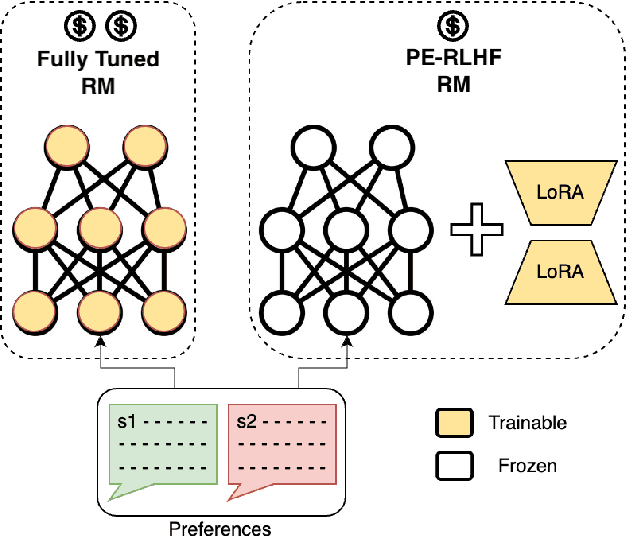
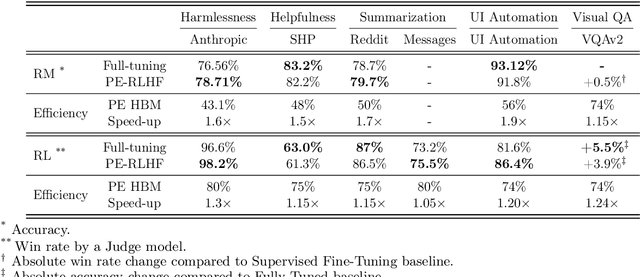
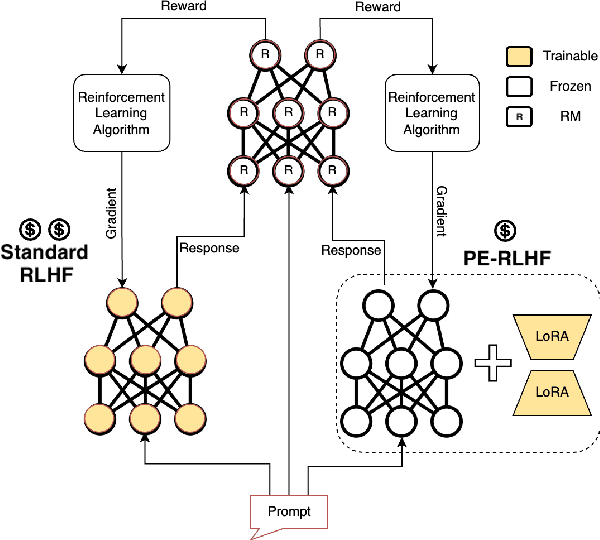
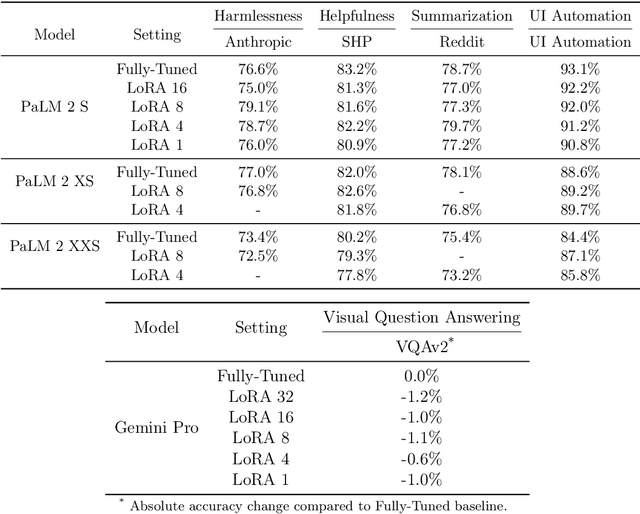
Abstract:Reinforcement Learning from Human Feedback (RLHF) has proven to be a strong method to align Pretrained Large Language Models (LLMs) with human preferences. But training models with RLHF is computationally expensive, and an overall complex process. In this work, we study RLHF where the underlying models are trained using the parameter efficient method of Low-Rank Adaptation (LoRA) introduced by Hu et al. [2021]. We investigate the setup of "Parameter Efficient Reinforcement Learning" (PERL), in which we perform reward model training and reinforcement learning using LoRA. We compare PERL to conventional fine-tuning (full-tuning) across various configurations for 7 benchmarks, including 2 novel datasets, of reward modeling and reinforcement learning. We find that PERL performs on par with the conventional RLHF setting, while training faster, and with less memory. This enables the high performance of RLHF, while reducing the computational burden that limits its adoption as an alignment technique for Large Language Models. We also release 2 novel thumbs up/down preference datasets: "Taskmaster Coffee", and "Taskmaster Ticketing" to promote research around RLHF.
RLAIF: Scaling Reinforcement Learning from Human Feedback with AI Feedback
Sep 01, 2023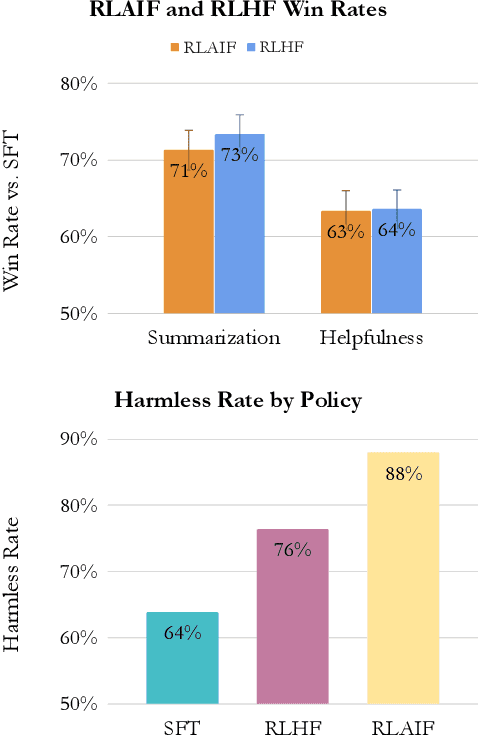
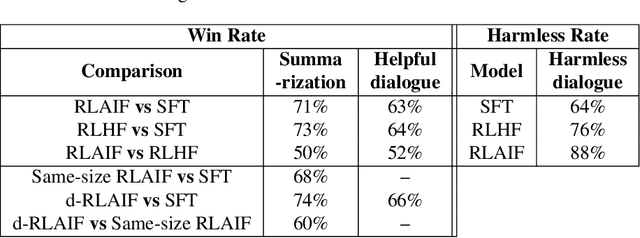
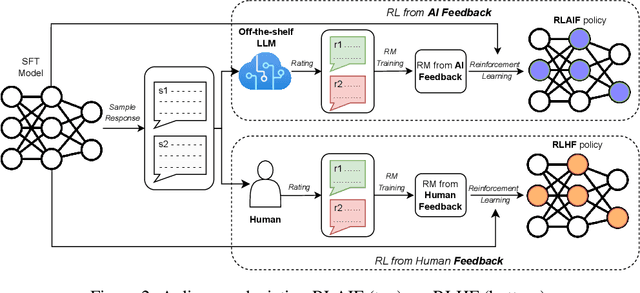

Abstract:Reinforcement learning from human feedback (RLHF) is effective at aligning large language models (LLMs) to human preferences, but gathering high quality human preference labels is a key bottleneck. We conduct a head-to-head comparison of RLHF vs. RL from AI Feedback (RLAIF) - a technique where preferences are labeled by an off-the-shelf LLM in lieu of humans, and we find that they result in similar improvements. On the task of summarization, human evaluators prefer generations from both RLAIF and RLHF over a baseline supervised fine-tuned model in ~70% of cases. Furthermore, when asked to rate RLAIF vs. RLHF summaries, humans prefer both at equal rates. These results suggest that RLAIF can yield human-level performance, offering a potential solution to the scalability limitations of RLHF.
Conversational Recommendation as Retrieval: A Simple, Strong Baseline
May 23, 2023Abstract:Conversational recommendation systems (CRS) aim to recommend suitable items to users through natural language conversation. However, most CRS approaches do not effectively utilize the signal provided by these conversations. They rely heavily on explicit external knowledge e.g., knowledge graphs to augment the models' understanding of the items and attributes, which is quite hard to scale. To alleviate this, we propose an alternative information retrieval (IR)-styled approach to the CRS item recommendation task, where we represent conversations as queries and items as documents to be retrieved. We expand the document representation used for retrieval with conversations from the training set. With a simple BM25-based retriever, we show that our task formulation compares favorably with much more complex baselines using complex external knowledge on a popular CRS benchmark. We demonstrate further improvements using user-centric modeling and data augmentation to counter the cold start problem for CRSs.
Prose for a Painting
Oct 08, 2019



Abstract:Painting captions are often dry and simplistic which motivates us to describe a painting creatively in the style of Shakespearean prose. This is a difficult problem, since there does not exist a large supervised dataset from paintings to Shakespearean prose. Our solution is to use an intermediate English poem description of the painting and then apply language style transfer which results in Shakespearean prose describing the painting. We rate our results by human evaluation on a Likert scale, and evaluate the quality of language style transfer using BLEU score as a function of prose length. We demonstrate the applicability and limitations of our approach by generating Shakespearean prose for famous paintings. We make our models and code publicly available.
 Add to Chrome
Add to Chrome Add to Firefox
Add to Firefox Add to Edge
Add to Edge